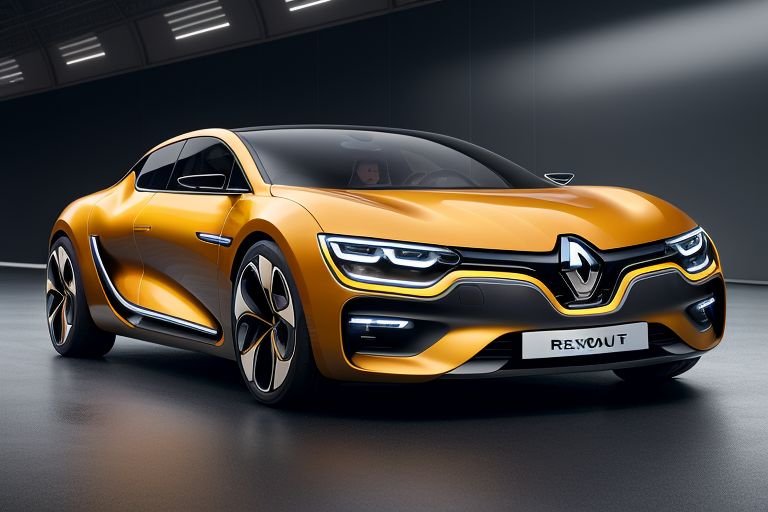
Renault Unveils Revolutionary Electric Vehicle Concept At Paris Motor Show
The Renault Éclaire, an electric vehicle concept from the iconic Renault, French automaker, caused an uproar at the Paris Motor Show today. The Éclaire’s sleek, futuristic look represents a bold step forward from Renault’s mission to lead sustainable mobility and cutting edge technology. The industry experts and enthusiasts have been especially drawn to the concept car that boasts a range of more than 700 kilometres, an indication perhaps of a radical shift in the electric vehicle market.
Compared to other similar designs, the Éclair features sleek, aerodynamic lines not only to make it look good, but to give it a range. Laurens van den Acker, Renault’s design team leader, has integrated such advanced materials and production technologies to construct a lightweight, but structurally strong vehicle. Body of the concept car made from a mix of recycled plastics and sustainable composites, in line with Renault’s dedication to being eco-friendly, from the moment it’s created.
Passengers step inside the Éclaire to find a spacious, luxurious interior showcasing Renault’s vision for the future of automotive comfort: a unique signature lighting feature that walks hand-in-hand with the generation’s connectivity capabilities. Panoramic glass roof behind the windshield to the tail of the vehicle takes over the cabin and makes it open and airy. The dashboard boasts a state of the art holographic display that displays the most important information front and centre on the windshield meaning the driver can keep their eyes on the road and utilise some of that data.
One of the reasons Éclaire shows all the promise it does, is because of its advanced artificial intelligence system dubbed “Lumière” by Renault. This AI assistant can learn driver preferences, and preferences, adjust certain vehicle settings to improve comfort, efficiency, and safety. Lumière can also offer real time traffic updates, suggesting the optimal route to share, or even have a natural conversation with passengers.
During the reveal, Renault CEO Luca de Meo stressed that the Éclaire concept can’t simply be considered a new car. The Éclaire is anything but a new vehicle, he said, it stands for Renault’s vision of the future of mobility. It’s a concept car that gives people a glimpse of what we’re striving, working towards in sustainable, technologically advanced automotive industry, and we’re committed to the lead the charge to make that happen.
Renault’s next generation electric motor and battery technology are also powering throughout the Éclaire’s powertrain. According to the company, the vehicle can hit 100 km/h in just 3.2 seconds faster than many high end sports cars. The Éclaire also includes an ultra-fast charging system designed to juice 80 percent of the battery in less than 15 minutes, a key concern many would-be electric car buyers have.
Renault’s bold move has been praised by industry analysts, who have predicted the car could put Renault at the forefront of the electric vehicle market. “Renault has clearly put in the effort to develop this concept and it really shows, said automotive expert Sarah Durand, from Frost & Sullivan. Could the Éclaire’s combination of range, performance and innovation become a game changer for the industry?
The Éclaire is a concept vehicle, but Renault has suggested that its technologies and features may appear in production cars not all that far into the future. From 2026, the first production model will feature construction inspired from the Éclaire and will include a range of new electric vehicles over the coming five years, the company has announced.
While automotive enthusiasts and environmentalists alike have been buzzing in the social media with excitement for Renault Éclaire, the new concept car unveiled on Paris Motor Show seems to have a potential to put a positive impression on the automotive industry. Together with the transformational era, Renault’s bold vision for the future of mobility has put the company at the forefront of this transformational era as the global automotive market continues to turn to electrification.


